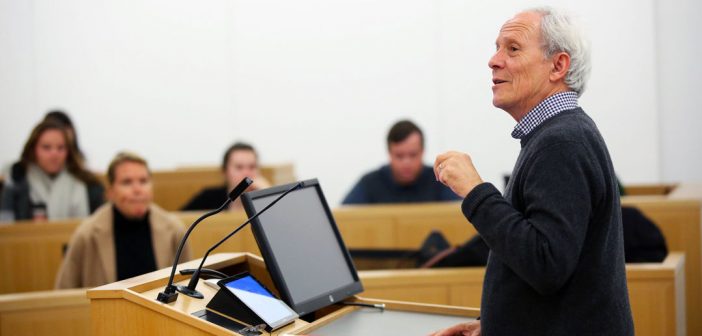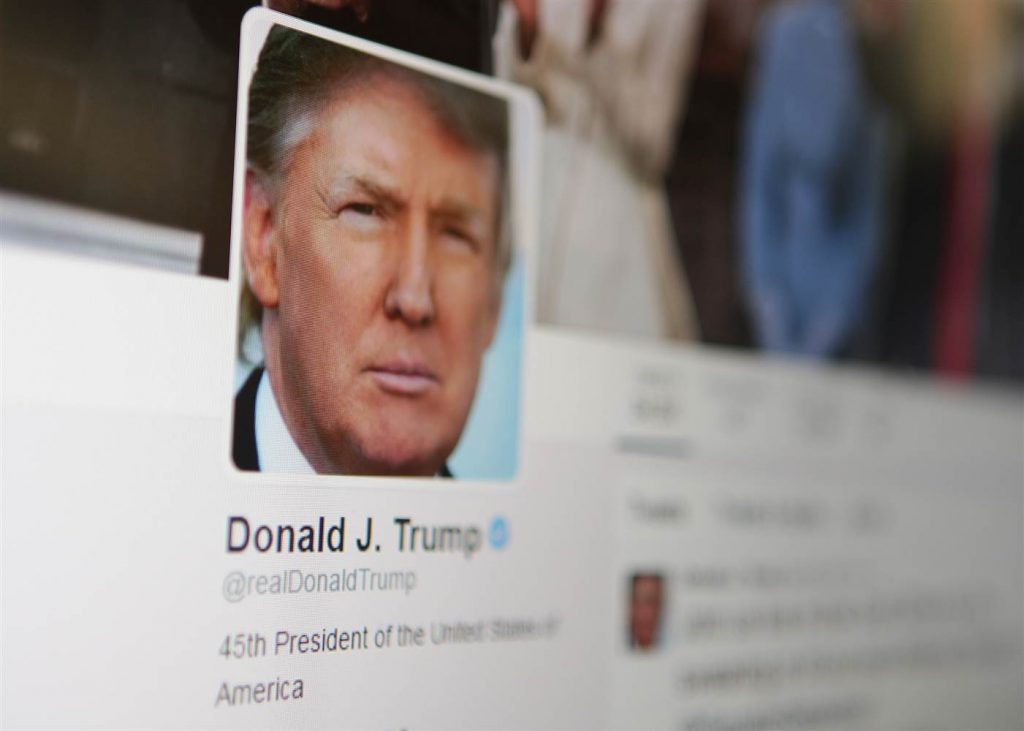NJ Monthly Mag Highlights Rutgers EMBA Doctors, and More – New York City News

Let’s explore some of the most interesting stories that have emerged from New York City business schools this week.
NJ Monthly Mag Highlights Rutgers EMBA Doctors – Rutgers Business Blog
According to stats released by Rutgers Business School, it’s not uncommon to find between 1-5 doctors in a typical EMBA class. This is largely due to the new reality of the medical profession, which has increasingly required that doctors “transition from medical practice to running hospitals, managing hospital finances, heading-up HMOs, working for pharmaceutical companies and becoming Chief Medical Officers.”
Three Rutgers EMBA Doctors made New Jersey Monthly Magazine’s annual “Top Doctors” list:
- Clifford Sales, a vascular surgery specialist at Overlook Medical Center
- Eric Seaman, a male infertility specialist at the Urology Group of New Jersey
- Jacqueline Williams-Phillips, the medical director of the Pediatric Intensive Care Unit at Bristol-Myers Squibb Children’s Hospital at Robert Wood Johnson University Hospital in New Brunswick and associate professor of Pediatrics at UMDNJ-Robert Wood Johnson Medical School.
Learn more about these EMBA Superstar Doctors here.
Patagonia Exec Talks ‘Fast Fashion,’ Fair Trade, and What It Means to Be A Responsible Company – Gabelli Connect
The Gabelli School of Business‘ Center for Humanistic Management recently hosted a guest lecture from Vincent Stanley, the Patagonia director of philosophy, in which he talked about how corporate responsibility has directly shaped the company’s business.
“One of our big concerns is how we look at the challenges of the planet and ensure that our company is not contributing to those challenges and instead contributing to the solutions. Nature is not just where we go to play. The health of our natural systems underlines all of our social and industrial systems, even in this tiny little town where we were based.”

Vincent Stanley, Patagonia director of philosophy / Photo via fordham.edu
You can read more about Stanley’s lecture here.
Can Stevens Students Create a Cryptocurrency Exchange? Bank on It – Stevens Institute of Technology SOB Blog
A team of Stevens Institute of Technology School of Business seniors recently announced its plans to unveil Coin Complex, a cryptocurrency exchange designed to address and improve upon the limitations of the current trading options, at the May 2 Innovation Expo. George Engroff, a senior finance major who recently completed a summer internship with Credit Suisse, elaborates: “The exchanges I was using were completely inadequate—none of them gave you a good understanding of the market and your portfolio. So I thought, here at Stevens, we have a lot of smart people and innovators—I’m sure we could make a better exchange than what’s out there.”

The Coin Complex login / Photo via Tom Braunck
You can find out more about Coin Complex here.
Boston News: Northeastern Explores Trump Tweets, MIT Offers FinTech Advice and More

Let’s explore some of the most interesting stories that have emerged from Boston metro business schools this week.
Can A Trump Tweet Dramatically Sway A Company’s Value? – Northeastern’s D’Amore-McKim Blog
Will Clark, DMSB ’17, along with Northeastern University D’Amore-McKim School of Business finance professors David Myers and Jeffery Born, sought to understand the impact that President Trump’s tweets—which often directly address publicly traded companies like Ford, Toyota, Walmart, GM, and Boeing—had on their stock market value.
“Past presidents communicated through the media. This was the first time that a president was communicating directly with the public—with investors—about companies. We really weren’t sure what to expect from the data,” says Clark, who is now a credit analyst with Morgan Stanley.
The trio’s research found that Trump’s tweets, in fact, did have some impact on companies, often increasing trade volume within the first few hours and days after he references them on the social media platform. The research was revealed in the academic journal Algorithmic Finance.
“The team found that Trump’s tweets dramatically increased trading volume for the companies’ stocks in the first few days following a tweet. They also found that positive (or negative) tweets about companies increased (or decreased) the firms’ stock prices by a modest amount—just 1 percent. But the changes were only temporary: Within a few days, the firms’ trading volumes and stock prices returned to pre-tweet levels.”
The lasting effect, however, was found to be longing. The trio notes that the most active traders, which they refer to as “noise traders,” were very reactive to Trump’s words, with trading tapering off after only a few days.

“They’re regular people and under-informed investors who want to get in and out and make a buck without thinking too long and hard about it,” Born notes about the financial impact of Trump tweets.
You can read more about the financial research on the Trump tweets from D’Amore-McKim here.
3 Lessons To Keep In Mind When Starting A FinTech Venture – MIT Sloan Newsroom
MIT Sloan School of Management MBA alum Sophia Lin, ’12, and her partner Andrew Kelley of the FinTech startup Keel, which connects “rookie investors with more seasoned ones,” shares some hard-won lessons in an op-ed for the Sloan blog. First of all: beware of hidden costs specific to FinTech. “
“Starting costs are higher than other industries because of data, infrastructure, and security requirements,” Lin said. “Data is expensive, which stops a lot of early stage startups from entering this field. But you need data to build your product.”
Read all of Lin’s words of wisdom here.
More CEOs Have Begun To Take Social Responsibility Seriously – HBR
CEOs from Facebook’s Mark Zuckerberg to Blackrock’s Larry Fink have begun to take very public stands to address the long-term impacts their products have had and continue to have on communities and the environment.
“We are witnessing a big, transitional moment—akin to the transition from analog to digital, or the realization that globalization is a really big deal. Companies are beginning to realize that paying attention to the longer term, to the perceptions of their company, and to the social consequences of their products is good business.”
Harvard Business School John and Natty McArthur University Professor Rebecca M. Henderson also explains that there are distinct differences between the size of a company, which often contrasts with the social goals of the company. The larger the company, the more long-term the outlook, she explains. Unlike small companies, larger firms worry about quarter-to-quarter results less.
“Big firms can also internalize certain externalities. An externality is a cost from a transaction that doesn’t fall on the buyer or the seller. If I pollute the air to make a product I sell to you, the cost of that pollution is spread out across society, and isn’t incorporated in the price I charge you for the product. Externalities pose problems for markets, since neither buyer nor seller have any incentive to deal with the costs. But sometimes, for really large firms, things work differently.”
The unfortunate causality, she notes, is that we are often reliant on the largest companies to take the initiative for causes that may be considered part of the global good. If some companies among the Fortune 500 elect to, say, go carbon neutral within the next decade, that can have a profound impact on other competing companies. And if those initiatives are not as profitable, there is an even greater risk of other companies being reluctant to attempt similar efforts.
Read more about the growing CSR trend among CEOs here.
